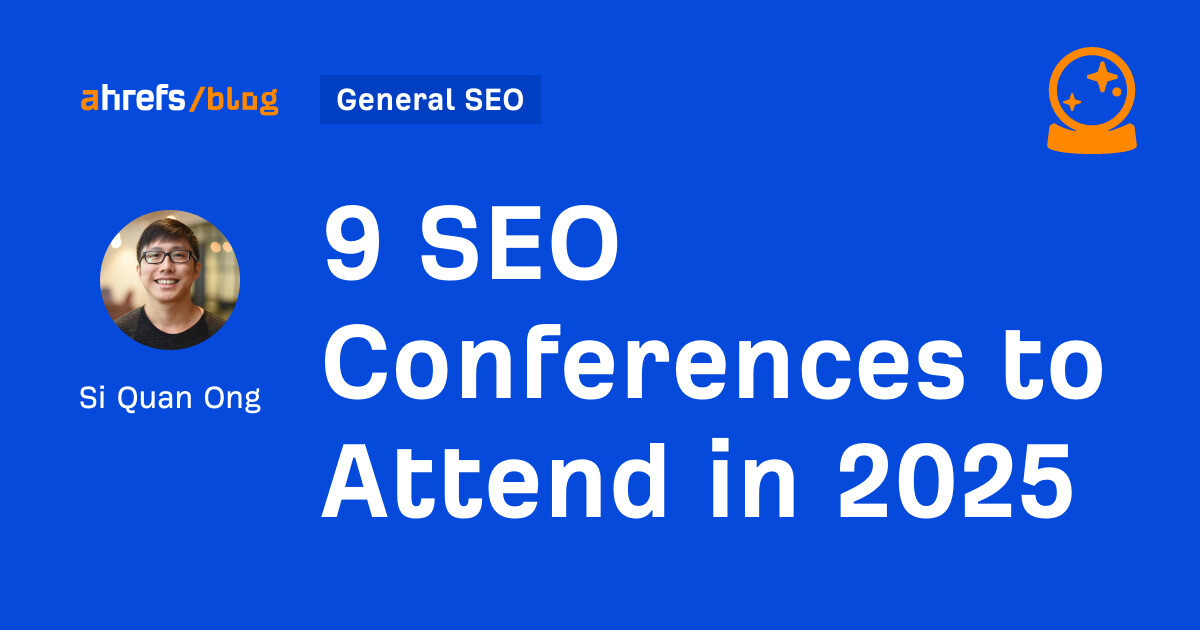How 5 marketing leaders reshaped their careers—and the industry
Art of reinvention made careers for AAF Hall of Achievement honorees, including founders of MikMak, We Are Rosie and Group Black.

If the pandemic has taught the ad world anything, it’s the need to be flexible. For professionals in this industry, this includes being nimble in their career trajectories.
For American Advertising Federation Hall of Achievement honorees, reinventing their careers is often crucial to the accomplishments that end up winning them the honor.
Here are stories of five recent Hall of Achievement honorees—including one being inducted this year—who’ve made major changes in their careers and businesses, some of them on the verge of making more. Their stories are proof that career pivots do wonders and bring insight on how others can reinvent their careers.
Stephanie Nadi Olson (2022 AAF Hall of Achievement honoree)
From selling software to getting people work
To understand career reinvention from the very human side, there may be no better short course than Stephanie Nadi Olson’s LinkedIn profile. Each entry includes straightforward descriptions of what she did, how she grew and why she left.
For example, she outlines why she left her first job as a Microsoft account manager in 2007: “I was ready to go into sales, and they weren’t ready to give me that chance.” Then at AOL, where she was senior director of sales for travel and finance from 2007 through 2011, she discusses how she grew: “Got really comfortable asking for roles and responsibilities I wasn’t yet ready for. Then worked my ass off to prove it was the right decision.” Then the deal breaker came: “Traveled six days a week. It was glamorous and fun until it wasn’t, so I left.”
She moved on to sales roles at Tribal Fusion, a tech-enabled media services company, where, she writes: “I could work fewer hours, travel less, and make just as much money”; then Yahoo (“They didn't have a strong enough product for me to sell (yet), so I went back to work for my former AOL Manager again—- round 3!”); and back to Tribal Fusion’s Exponential unit, where she acknowledged she “made a bunch of people money while working through postpartum depression.”
From there, Olson advised a programmatic/analytics startup that went to $20 million in revenue as she adjusted to being a mother of two and in her words, “received a kick in the ass from the universe to create the change I want to see in this business.”
This ultimately led her to create We Are Rosie, a flexible talent solution with more than 9,000 independent marketers ranging from former Fortune 500 C-suite executives to “self-taught brilliant creatives.” It was named after her youngest child, Margot Rosie, and built to disrupt a marketing industry that, Olson said, historically “has marginalized people wanting or needing to work in flexible and independent ways.”
The need for We Are Rosie became obvious to her “when I had two babies at home and needed to be in New York five days a week and traveling constantly, working nights and weekends,” she said. “I literally had my baby crawling around on the floor while I was making furniture for the office for my last company, and I thought, if I’m going to do all this, I’m going to do it for myself.”
All the sales experience helped. “All of my compensation has been commission- and variable-based,” she said. “Sales trains you to bet on yourself.”
And the business, launched in 2017, took off fast even before the pandemic made distributed workforces the norm.
“Something I think people don’t realize,” Olson said, “is before I started We Are Rosie, I was a salesperson. I had only ever led a team for eight months. I wasn’t even this huge sales leader. I was a smaller salesperson who won all these big awards and worked on huge campaigns and accounts, but I wasn’t a leader in a traditional sense.”
But in five years she has gone from “fighting to get a meeting with a media supervisor,” to a point that “now I know the CEOs of all the ad agencies that are owned by holding companies, and it’s a totally different world.”
Rachel Tipograph (2021 AAF Hall of Achievement honoree)
From marketing comedians to CPG tech
Rachel Tipograph has learned “not to be married to my own ideas.” It’s this philosophy that led Tipograph to go from marketing comedians via Facebook while a student at New York University to founding a consumer packaged goods tech company.
Tipograph’s early work on Facebook back in 2008 showed her the power of Facebook ads and became the foundation of the tech startup—MikMak—she founded six years later.
First, however, came Undercurrent, a digital agency that no longer exists, but was once a hot shop that called PepsiCo, HBO and GE clients, and gave Tipograph executive contacts that would help her later. From there, in 2011, Gap recruited Tipograph as a global director of digital and social media marketing. At 24, she was the youngest marketing executive the retailer ever hired.
But Tipograph wanted to start her own company, which she did with MikMak in 2014. It started as a mobile shopping network with roots in Tipograph’s college business—having comedians create shoppable online videos for items priced under $100.
L’Oréal was an early pilot adopter through its innovation fund for female-led tech startups. But Tipograph soon realized she’d never be able to attain the scale to make the business profitable. Still, early CPG users showed her the way to a better path: MikMak would become a software-as-a-service company that lets brands make ads—or use creator content—and allows consumers instantly fill shopping carts at a variety of online retailers. The format lets CPG marketers both sell products and track the success of their spending.
“The first version of MikMak was totally different than today,” Tipograph said. “What I feel I’m pretty exceptional at is I can really read the tea leaves in the industry, and I’m not married to my own ideas, because business is dynamic and things change, often really quickly.”
With the marketplace continuing to change, Tiopgraph said MikMak is also preparing for its “next big act,” which includes owning more of the commerce marketing tech stack.
Joe Marchese (2016 AAF Hall of Achievement honoree)
From tech startup to TV sales Fox to venture capital
Attention—that is, how consumers spend their time and how to measure that—has been at the heart of Joe Marchese’s career, but it has taken many different forms.
After working as a business analyst for Monster Worldwide and head of consultancy for Bainbridge’s online media practice, Joe Marchese embarked on his first startup—True[X], an ad tech firm that positioned itself as an answer to the commercial clutter that long plagued the TV industry and made digital competitors more attractive to both consumers and advertisers. This premise caught the attention of Fox, which acquired True[X] in 2015; ultimately, Marchese became the president of advanced advertising and later ad revenue at Fox Networks.
During his time at Fox, Marchese learned why innovating within big companies is daunting. “So few things matter at their scale,” he said. “There’s always this myth that you could take the best of startups and combine [them] with the resources of a big company. But we ended up getting the red tape of a big company and the resources of a startup.”
Marchese rejoined the startup world in 2019 as CEO of Attention Capital, an investment firm focused on buying and building firms in the attention economy. He is also a partner in Human Ventures, an early-stage venture fund that backs everything from a tequila company, to baby food brands, to women’s health care companies.
“The number one line item after their people is sales and marketing,” Marchese said, so the media industry experience keeps paying dividends. Startups also find it daunting to figure out how to partner with large companies, so he can provide some insights to help on that front, he said.
Today, innovation for startups might seem more challenging given greater scarcity of capital amid the rocky financial markets of 2022. But the capital tightening actually makes this a better time for early-stage startups, Marchese said.
“When the capital was loose, it was very hard to market and get attention, because even companies that didn’t have product-market fit could still use up a lot of advertising and take up a lot of time from consumers, make a lot of noise,” he said. “I think you have a market now where it’s never been a better time to start a business at the earliest stages. What they really need to do is be smart with the capital they do have and not waste money on bad advertising, understand how consumers work and get feedback quickly.”
Ian Schafer (2015 AAF Hall of Achievement honoree)
From movie studio to stealth sports media launch
Ian Schafer began his career in 1997 with digital agency i-Traffic, essentially because he wanted to help create advertising for The Walt Disney Co., which later hired him and put him to work on Miramax. He became VP of new media for Disney through 2002, leading digital and media innovation for Miramax.
“I knew at a very young age that I wanted to live at the intersection of media, entertainment and technology,” Schafer said, and Disney made that possible.
“I felt like I got a master’s degree while working there,” Schafer said. “Part of what enabled that was how dysfunctional the environment was. I was able to kind of exploit that to get into meetings that I otherwise wouldn’t be in. I felt that working there taught me how to be an effective generalist.”
The dysfunction Schafer is referring to, of course, is Miramax’s link to co-founder and now-convicted sex offender Harvey Weinstein.
“The dysfunction became more and more evident,” Schafer said. Outside of Weinstein, from a marketing perspective, he felt Disney wasn’t innovating fast enough. Miramax acquired a DVD business because it didn’t trust Disney to distribute its films, but Schafer also had doubts about DVDs being the future of home entertainment.
That led him to launch the agency Deep Focus, and convince Disney to become a client rather than replace his role internally. Early on, Deep Focus did award-winning work for the launch of “Kill Bill.” Success bred work for other Hollywood studios, then record companies and cable networks, where Schafer helped “these companies get out ahead so they were seen as big innovators instead of the biggest laggards.”
That in turn attracted business from big non-entertainment brand marketers, including Microsoft, Nestlé and Unilever, he said. Ultimately, Deep Focus was sold to Engine in 2010, and Schafer stayed on through 2017.
“I felt I needed a break from other people’s brand growth,” he said. “And over the years, I had built up a strong frustration with business as usual.”
While watching coverage of Davos in 2018, he recalls the commentary from a climate activist that “it’s like sending a bunch of arsonists to a convention talking about how to put out fires. I remember seeing a photo of a poverty exhibit with a guard sitting in front of it, and I’m thinking, this is exactly how not to solve the world’s problems.”
From that grew the idea of Kindred, a community of “purpose-driven leaders” dedicated to diversity, equity and inclusion and environmental, sustainability and governance advancement.
The initial idea was around building events, the first of which was scheduled to take place in May 2020. “It turned out to be one of the most 2019 ideas ever,” Schafer said. The pandemic, and later the murder of George Floyd, changed things quickly. Kindred shifted to become a virtual educational platform for executives seeking education about how to bring positive change.
For his next act, Schafer currently is working on a sports media company in stealth mode.
“I believe in the power of storytelling,” Schafer said. “And I also believe in what athletes can do, and now say, to inspire millions to take action.”
Bonin Bough (2013 AAF Hall of Achievement honoree)
From PR to digital media pioneer to fighting for equity Group Black
Bonin Bough’s career has been a study in reinvention—both for himself and an industry he helped push to embrace digital media.
From a career that started in public relations with Ruder Finn and later Weber Shandwick, he became chief digital officer at PepsiCo, moving on to duties at Kraft Foods and Mondelēz, where he was chief media and e-commerce officer through 2016. He then helped Sundial Brands, maker of Shea Moisture among other personal care products, attract an acquisition by Unilever in 2017. He later became chief growth officer of music discovery social video platform Triller.
Most recently, he’s been co-founder and chief growth officer of Group Black, one of the largest collectives of Black-owned media and diverse creatives. Bough also continues to operate a growth accelerator, Bonin Ventures, and advise Lockstep Ventures, a venture capital firm that seeks to address racial inequality.
On all of these stops, Bough has pushed for change. “My focus was to make PepsiCo a beacon for digital change,” he said. Then at Mondelēz, at a time when mobile media was still relatively fledgling, he set a goal of putting 10% of the company’s spending into mobile and getting the media industry to establish a mobile upfront akin to the TV upfronts, in an effort to establish price parity between TV and digital buys and allow movement of budgets between those buckets.
“I had partners who told us it wasn’t possible,” Bough said. “And one partner took me under his wing, Bill Koenigsberg [CEO of Horizon Media], who introduced me to all the [network] leadership” and helped make the changes happen.
With Group Black, Bough is looking to make a different change happen. “One of the biggest business opportunities we have in front of us is to unlock under-invested communities and opportunities,” he said.
Black-owned media, he said, isn’t limited to Black-targeted opportunities. He pointed to the success of Marvel’s Black Panther franchise and hip-hop music. “We think investing in diverse voices at scale is going to unlock business growth we’ve never seen before,” Bough said.

 JaneWalter
JaneWalter 






























